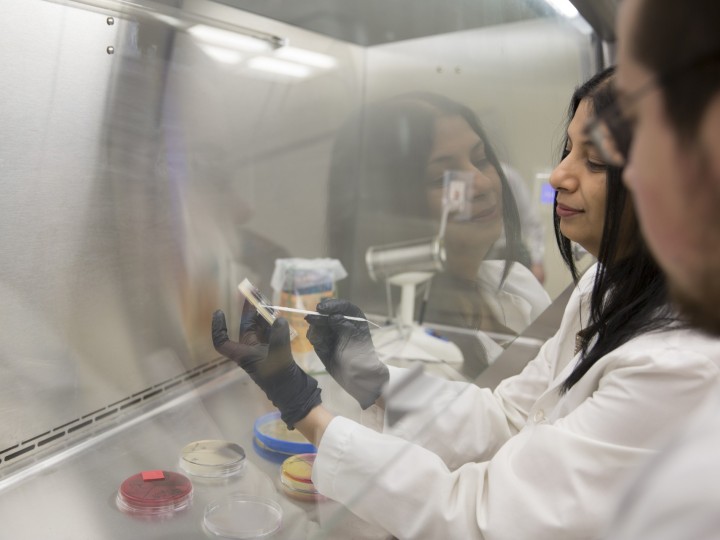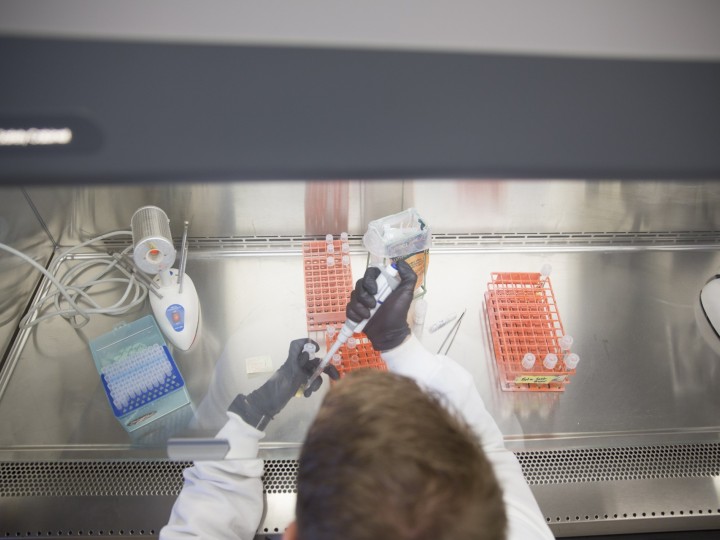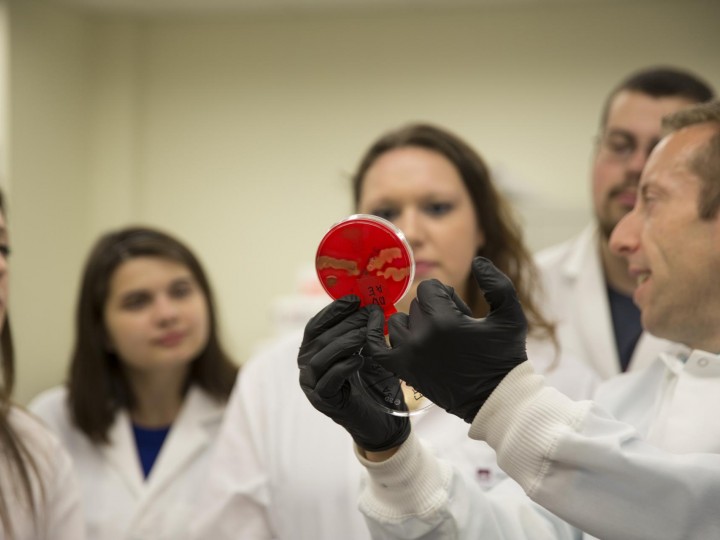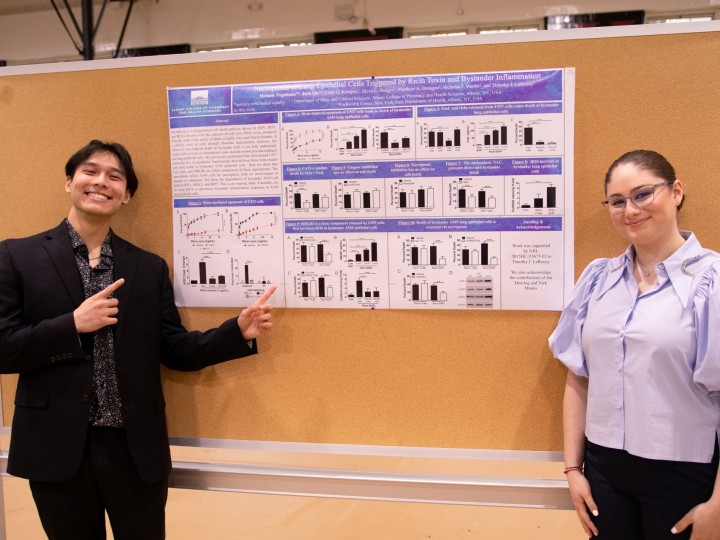As a molecular biologist, you will address the largest and most complex medical problems at a cellular level. ACPHS offers the guidance of faculty-research mentors, unmatched research facilities and options that tailor your experience to your interests.
Work alongside a faculty member based on shared research interest for the entire duration of the two-year molecular biosciences master’s program. Get hands-on experience in state-of-the art research facilities. Personalize your molecular biosciences master's degree with a focus on laboratory training (thesis track) or through experiential learning (capstone track).
Our program will expand your understanding of key scientific fields such as microbiology, immunology and infectious diseases. Whether you’re entering a PhD program or looking to begin a career researching cures or diagnosing diseases, the molecular biosciences master’s program will leave you confident in your research capabilities and knowledge of the human body's inner workings.

By learning the basic mechanisms of human health and disease at the cellular level, you will have the foundational knowledge necessary to develop therapies to diagnose and treat infectious diseases, cancer, diabetes and other conditions.
Many molecular biologists have long, fulfilling careers seeking insights into how human health can be improved from the inside out. As a molecular biologist, you can make groundbreaking discoveries that lead to disease treatment and prevention and ultimately advance human health.

ACPHS laboratories feature state-of-the-art resources for researching cell signaling, infectious disease, DNA, RNA and protein function.
Guided one-on-one by your faculty-research mentor, you will get experience with laboratory equipment and techniques used by professional molecular biologists.
In addition to these resources, ACPHS students (and their faculty-research mentors) benefit from shared access to nearby research facilities and the College's Stack Family Center for Biopharmaceutical Education and Training (CBET).
You can also apply for a research assistantship, which allows you to earn $2,500-$3,000 per semester. This stipend can be earned in addition to the many merit- or need-based scholarships available to ACPHS students.

Many graduates from the molecular biosciences master's program continue to top PhD programs in biochemistry, cell biology, immunology, microbiology and molecular biology. Others enter into the biopharmaceutical industry positions at top companies around the country.
ACPHS has a proven track record of helping alumni secure admission to their desired PhD program or employment at top research universities or private companies — with opportunities for skilled professionals growing every day.
More than 9,500 molecular biologists will be needed over the next ten years to fill the growing need for highly trained researchers who understand human health and disease.

The thesis track allows you to gain hands-on research experience and learn laboratory research techniques with the aim of answering relevant scientific questions and includes an 18-month deep dive into a project of your choosing under the guidance of a faculty-research mentor.
The capstone track is designed for those seeking careers in an industrial setting. This track peaks with an internship at a private research company, allowing you to apply classroom lessons and gain real-world experience.
Associate Professor
518-694-7368
Vir.Singh@acphs.edu
Albany, NY 12208
admissions@acphs.edu
518-694-7221


